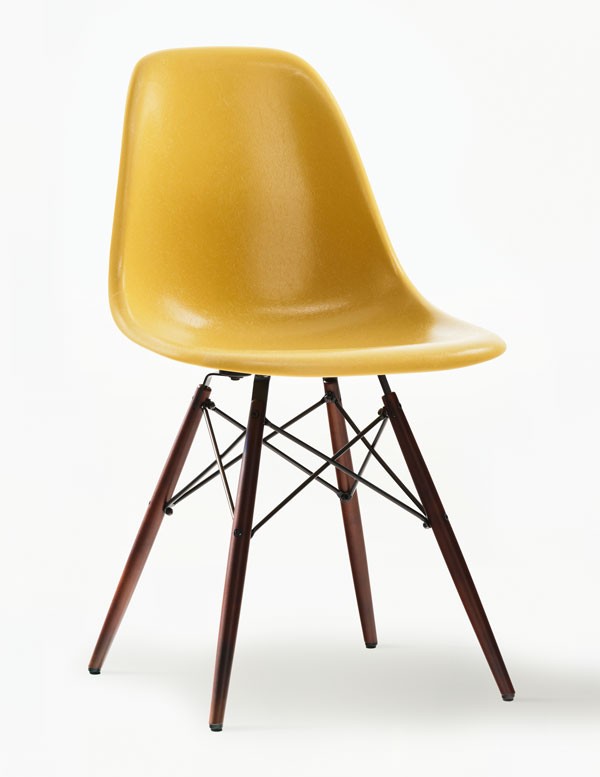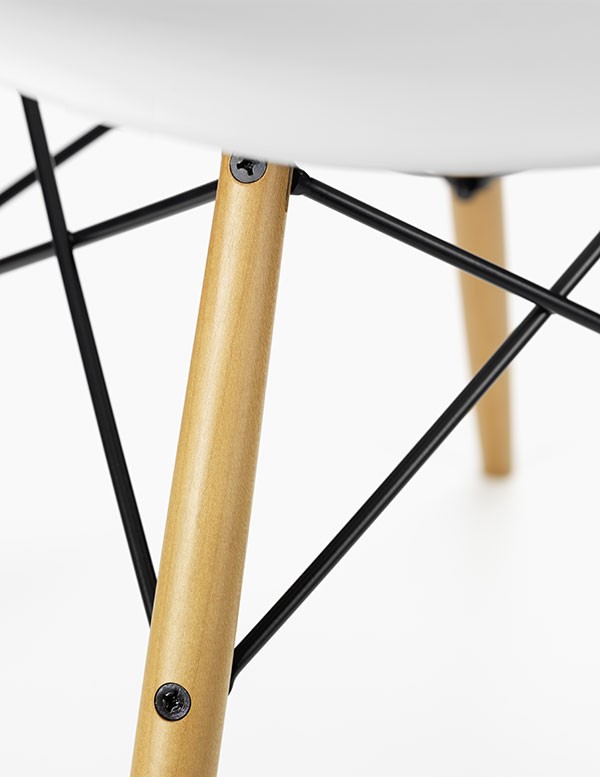Design icon: Vitra Eames DSW
Designed by Charles and Ray Eames in 1950, the DSW chair epitomises mid-century style. Join us as we take a closer look at this iconic design.
Playful, functional, iconic - the Vitra Eames DSW Side Chair has become one of the most popular chairs of the 20th century. Designed by American duo Charles and Ray Eames in 1950, this design epitomises mid-century style.
Originally produced by the Eames’ in collaboration with Zenith Plastics for the MOMA’s Low-Cost Furniture Design Competition, the DSW later became the world’s first industrially manufactured plastic chair.
Charles and Ray were dedicated to the mid-century ethos of providing good quality, affordable design to the masses, and thus spent much of their careers experimenting with different materials and manufacturing methods. It was in this experimental wave that the DSW was first established.
Released in 1950, originally in metal, then fibreglass and now in a hard-wearing recycled polypropylene – the moulded shell of the seat was a revolutionary design at the time for its ability to be mass-produced at a low cost while providing a supportive, comfortable seat.
The duo designed the shell of the chair to mould to the body – creating a posture-supporting shape that made upholstery an unnecessary element. This also fitted in well with their functional, modern approach to design.
With its hard-wearing, beautiful design adaptable to all kinds of situations, the DSW quickly became a popular choice for everything from an everyday dining chair to a statement side chair in a luxury apartment.
The DSW is part of a large collection of chairs designed by the Eames’ in the mid-1900s. Its name is made up of the initials that describe its characteristics – D refers to dining chair, S refers to side chair, and W refers to the wood of its legs.
The DSW’s seat shell is now made from hard-wearing recycled post-consumer polypropylene and has steel struts in black with solid maple wood legs. It measures W46.5 x D55 x H83cm, with a seat height of 43cm.
It is available in several colours, many of which reflect the mid-century modern era in which it was first produced, and is now manufactured from recycled post-consumer plastic.








